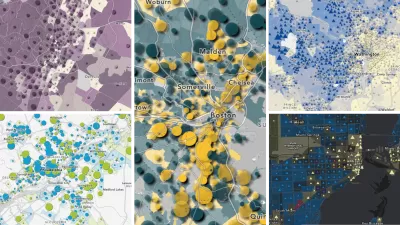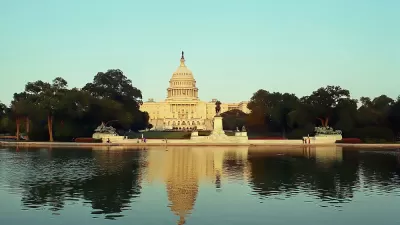Rep. Ted Poe (R – Texas) has introduced legislation that would gut the reach of the American Community Survey—one of the most useful sources of information for planning research.
Abigail Zenner reports that a recently proposed bill in Congress would threaten the collection of data vital to planning in the American Community Survey (ACS). According to Zenner, "Representative Ted Poe (R-Texas) introduced a bill (HR 2255) that would make all but four of the ACS survey questions voluntary."
Here's how Zenner explains the possible impact of the proposed federal legislation: "If the ACS loses its funding or is made voluntary, the survey would dramatically decline in participation rate. When Canada changed their similar annual survey from required to voluntary participation, the rate dropped from 94 percent to 69 percent. That drop increased survey costs since the government had to send out far more surveys to boost the sample size. Despite those efforts Canada’s survey could not produce reliable data for 25 percent of the nation."
The American Planning Association (APA) has already mobilized a response to the bill, gathering representatives from the U.S. Council of Mayors, International Council of Shopping Centers, Asian Americans Advancing Justice, and the Marketing Research Association to speak with congressional staff "about the importance of preserving the ACS and how that data is used for communities and business." The APA also joined 20 other organization, including the U.S. Chamber of Commerce, labor unions, and retail groups, in sending a letter to Congress explaining the importance of ACS.
FULL STORY: Congress puts the American Community Survey at risk

Planetizen Federal Action Tracker
A weekly monitor of how Trump’s orders and actions are impacting planners and planning in America.

Maui's Vacation Rental Debate Turns Ugly
Verbal attacks, misinformation campaigns and fistfights plague a high-stakes debate to convert thousands of vacation rentals into long-term housing.

San Francisco Suspends Traffic Calming Amidst Record Deaths
Citing “a challenging fiscal landscape,” the city will cease the program on the heels of 42 traffic deaths, including 24 pedestrians.

Amtrak Rolls Out New Orleans to Alabama “Mardi Gras” Train
The new service will operate morning and evening departures between Mobile and New Orleans.

The Subversive Car-Free Guide to Trump's Great American Road Trip
Car-free ways to access Chicagoland’s best tourist attractions.

San Antonio and Austin are Fusing Into one Massive Megaregion
The region spanning the two central Texas cities is growing fast, posing challenges for local infrastructure and water supplies.
Urban Design for Planners 1: Software Tools
This six-course series explores essential urban design concepts using open source software and equips planners with the tools they need to participate fully in the urban design process.
Planning for Universal Design
Learn the tools for implementing Universal Design in planning regulations.
Heyer Gruel & Associates PA
JM Goldson LLC
Custer County Colorado
City of Camden Redevelopment Agency
City of Astoria
Transportation Research & Education Center (TREC) at Portland State University
Jefferson Parish Government
Camden Redevelopment Agency
City of Claremont




























